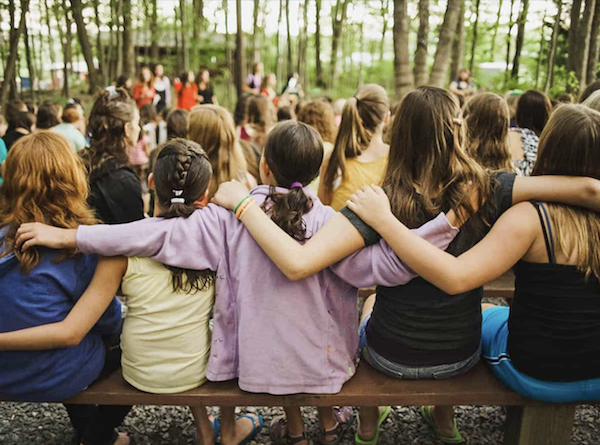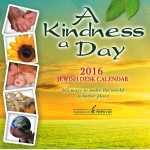Imagine teenagers, hanging out and sharing the usual in-group slang, but they’re saying “Lashon hara? Lamed hay! Tell it to me anyway!” This sarcastic chant was new to me, when Miriam Anzovin, the famous Jewish Talmud influencer, mentioned it on Instagram, along with her thoughts on a page of Talmud about lashon hara. Lashon hara, literally “bad speech or language,” refers to gossip, speech that is hurtful. We’ve all experienced it: at summer camp, synagogue, school, work or online. It’s real. It’s painful.
I’m not any kind of expert on this, or even especially good at avoiding harmful speech. The rabbis suggest that there are three bad things that most people can’t avoid daily: sinful thoughts, lack of intention while praying, and lashon hara. In the last week, I’ve thought of this too often.
First, I had the honour of being consulted by two different elders in my Jewish community. In one case, I had to gently lead the conversation away from this kind of talk, by suggesting that it wasn’t my place to comment on something. When it continued, I paused and said that, since Oct. 7, 2023, I had decided to work on achdut (unity) and avoided these kinds of conversations. I try to focus on good things instead. Later, the person I had chatted with apologized. For many of us, we don’t even see how often we’re veering down that road towards negative comments about others.
The second time, I had to tell a person who was “talking trash” that it was lashon hara and I wouldn’t do that. I couldn’t believe it when this came out of my mouth. The person was probably 30 years my senior. I wondered, a second later, when had I become this brash or disrespectful? Well, I guess it happens when the elder in question is also treading on thin ice.
This all came up again when I studied Bava Batra 164b. This page of Talmud looks at what makes a document or contract legal, and how we behave to one another when dealing with these documents. Judah HaNasi picks up a document, finds it doesn’t have a date on it, and announces it isn’t valid, it can be discarded. His son, Rabbi Shimon, stops him, saying, “Wait! Perhaps it’s a tied document!” In some regions, people folded a document, then signed and dated it on the outside. It’s a legal document, but with dates or signatures in different places. Why create a “tied” document? It was just a different custom.
When Judah HaNasi disapproves of the tied document custom, his son says, “I didn’t write it! Rabbi Yehuda Chayatta wrote it!” Judah HaNasi then chastises his son for his “malicious speech,” or lashon hara. He tells his son not to blame someone else for making this document or, as Miriam Anzovin says it, Rabbi Shimon rushes to throw Rabbi Yehuda Chayatta “under a bus.”
Then, a scene change: Rabbi Shimon is reading psalms to his father. The book he is using (handwritten, of course, since this was before the printing press existed) is remarkable; the writing straight and neat. Judah HaNasi comments on it. Again, Rabbi Shimon rushes to say, “I didn’t write it, Rabbi Yehuda Chayatta did!” His father responds again by asking him not to do lashon hara.
In this second instance, you’d think, what just happened? Why would the dad say this? Rabbi Shimon is complimenting this amazing scribe. However, Rav Dimi teaches that one shouldn’t go out of their way to praise someone, as that too can attract negative attention.
This point seems strange until it happens in real life. Imagine a teacher points out that a student has done a marvelous job on an assignment, and this results in other kids making fun of the student later, at recess. Drawing too much positive or negative attention to another person can cause problems, according to the rabbis.
I thought about these issues when I encountered another relevant educational incident. A professor creates an assignment for their students and suspects them of using ChatGPT (Open AI) to do the work. The professor thinks they are all cheating and, straight away, files paperwork to have the issue adjudicated by department heads and deans. All these students are now in big trouble.
Since the professor suspects cheating, his colleagues evaluate the work. They run all the students’ work through another AI program to “check” it. This app accuses students of cheating – but it’s sometimes wrong. The AI checking program reportedly has at least a 4% failure rate.
This seems like another complicated case of lashon hara. Is it possible that some students cheated? Yes, it is. At the same time, why did this professor immediately think the worst? Slander against students and student mistakes are both real, but neither is helpful in a learning environment. Most students don’t want to waste their time or tuition money, so they don’t cheat. We can’t always identify malicious intention correctly.
We all complain about others. It’s common to point fingers when something isn’t going our way. There’s always enough blame to go around. Yet, perhaps by drawing attention to others, malicious or complimentary, we also draw attention away from ourselves. The lesson about lashon hara is that getting along with others, being a part of a community, is fraught with pitfalls. We fail ourselves, and others, by saying unkind, unnecessary things. At the same time, we fail others by complimenting them in ways that draw “the evil eye,” or negative attention.
Giving compliments is still important. Just like giving corrections, it must be done with care. In retrospect, I’m embarrassed that I mentioned this to my elders, but I’m also embarrassed by their words. We want to accuse someone else of being “the problem.” In the end, sometimes we are the problem, and that’s hard. A common outcome is when there’s a problem and it’s nobody’s – or everybody’s – fault. Then, we all must bring solutions, show we care about one another, and make amends. We Jews live in community. Achdut, unity, is about more than politics. It’s about caring for one another.
Joanne Seiff has written regularly for the Winnipeg Free Press and various Jewish publications. She is the author of three books, including From the Outside In: Jewish Post Columns 2015-2016, a collection of essays available for digital download or as a paperback from Amazon. Check her out on Instagram @yrnspinner or at joanneseiff.blogspot.com.



